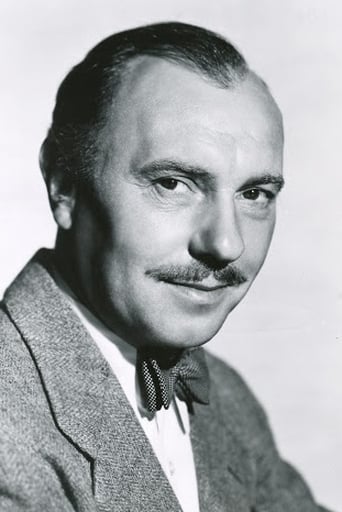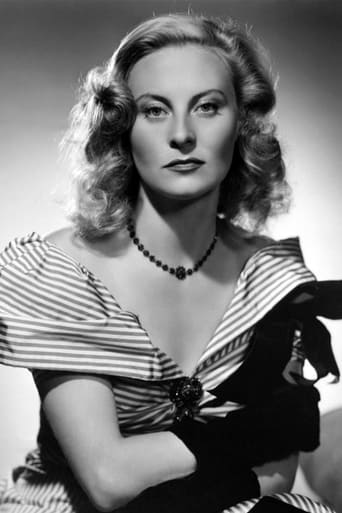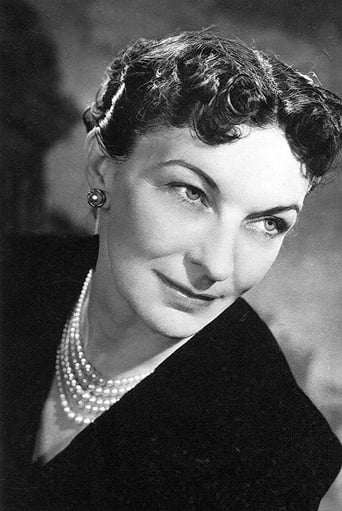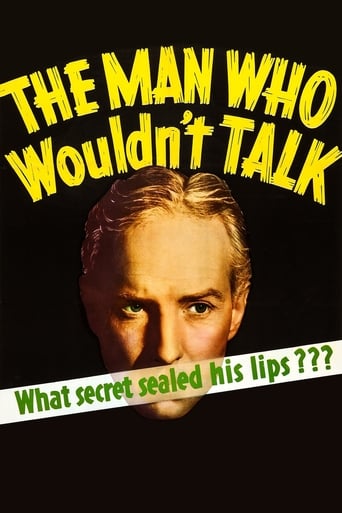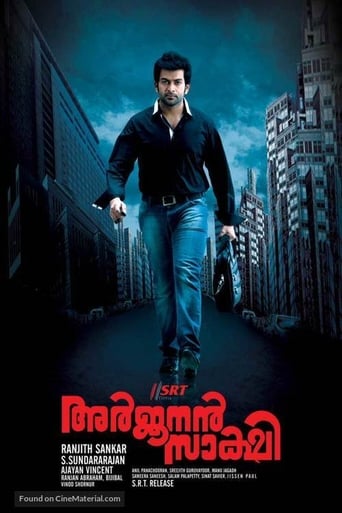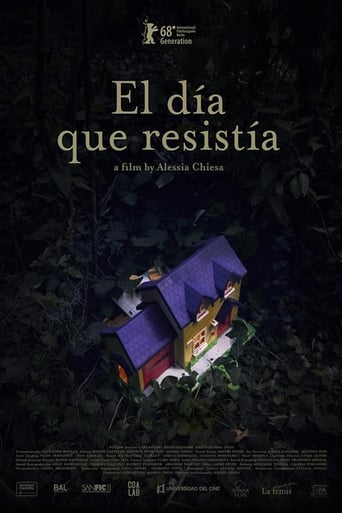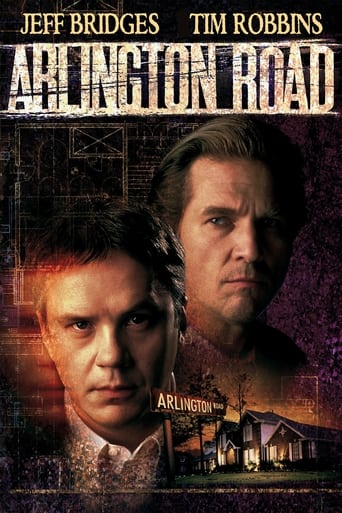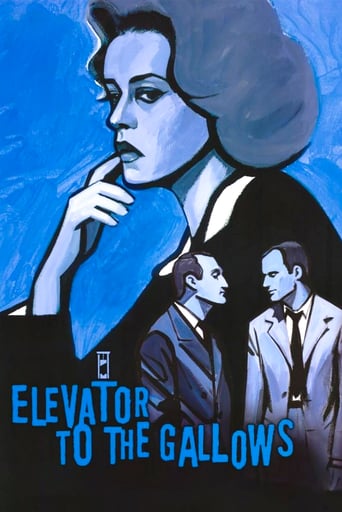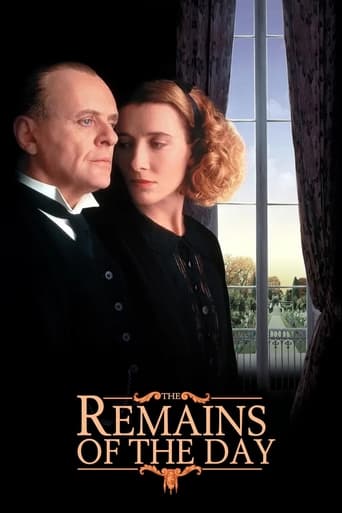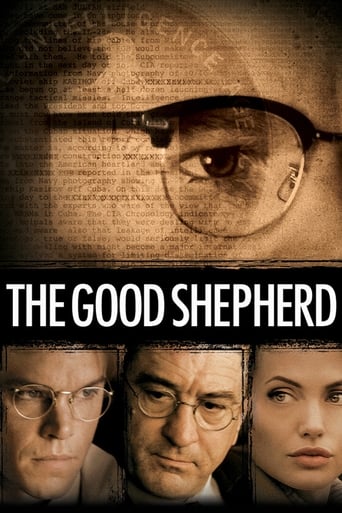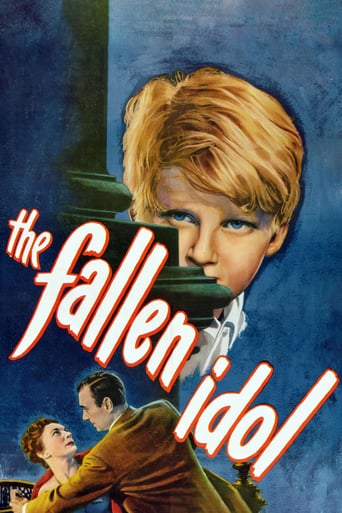
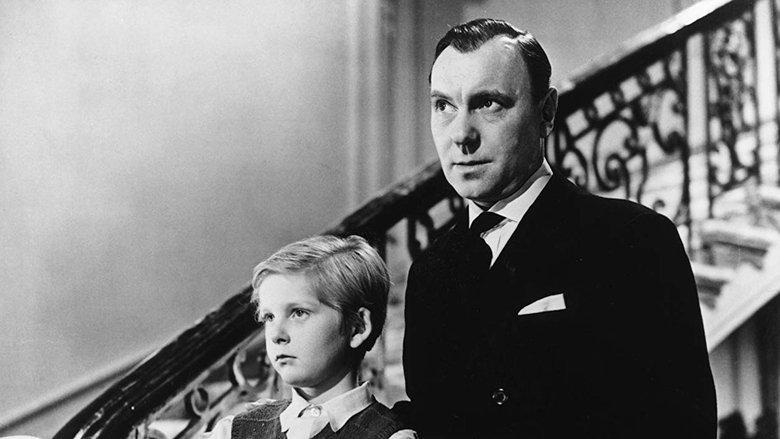
The Fallen Idol (1948)
Phillipe, the son of an ambassador in London, idolizes Baines, his father's butler, a kind of hero in the eyes of the child, whose perception changes when he accidentally discovers the secret that Baines keeps and witnesses the consequences that adults' lies can cause.
Watch Trailer
Cast
Similar titles
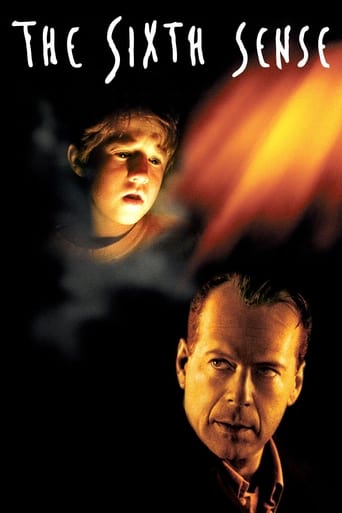
Reviews
How sad is this?
In truth, there is barely enough story here to make a film.
The best films of this genre always show a path and provide a takeaway for being a better person.
Exactly the movie you think it is, but not the movie you want it to be.
This begins quietly enough and if Ralph Richardson is effective as the butler, there is no real hint that this is going to rise much above the level of a decent melodrama. Things do pick up, however, and an effective thriller seems to rise out of very little other than meticulous directing, flawless cinematography and fine acting. Bobby Henrey is enormously effective as the young boy although I understand this was more down to the personal efforts of director carol reed and careful editing than any particular acting skills on his part. Nevertheless he is most convincing and as the tension mounts the frustration surrounding his ability to know who to trust works extremely well. As with the 1946 film, Spiral Staircase, a central set of stairs is crucial to the tale with almost all action taking place on or through a door off them. There are one or two outside exclusions to the London streets and one particularly effective and evocative one towards the end when the boy runs out into the stunningly lit night streets. Absorbing, involving with a most exciting last act.
'The Fallen Idol' is in theory a good and interesting film. The final result can be disappointing. At least on an early impression. This is a complicated movie to rate and judge. It's not confusing or inconsistent but it's complex and doesn't always make sense. Nevertheless, it can grow on you with time.Visually it is one of the best-looking films in black and white. The plot is interesting although it could be better worked at times. This film is often said to be "hitchcockian" for its film-making and "suspense". There is some suspense but nothing all that "hitchcockian". And that's where lies one of the weaknesses of this film: it definitely could use more true suspense, more darkness, more terrifying moments.The film takes place in London, in a fancy big house with a french little boy named Phillipe, the butler Baines and the butler's wife Mrs Baines. Phillipe idolizes the butler, but can't stand Mrs. Baines. And rightfully so, she's a horrible person. She is mean for Phillipe (she even slaps him) and she hates MacGregor (Phillipe's little pet snake). MacGregor is a cute name for a little snake and, even though I never think of any snake as being cute, I think MacGregor is a cute snake. Phillipe is very fond of his beloved MacGregor and very loving towards him. Mrs. Baines is so cruel that she burns poor innocent MacGregor alive! So it's not like she doesn't deserve her fate, even if accidental.Phillipe witnesses Mrs. Baines's accidental death, but thinks he saw Baines intentionally murder her. Phillipe is a strange little boy. On one hand, he's utterly cute and adorable. On the other hand, he's not annoying but he often has erratic behaviors and seems to be a very confused and immature boy and has the bad habit of stubbornly lying. He doesn't seem to have a stable personality. That may be in part due to the abuse he suffered from Mrs. Baites. Or perhaps he was already born with some kind of personality disorder. He also runs away like crazy after witnessing Mrs. Baines's death as if he was terrified but acts as if he wasn't. He lies to the police and his clumsy attempts to protect his idol almost put Baines in trouble. Phillipe is a complicated character, definitely not an easy one to evaluate. He seems like a child who is losing his innocence and hides his emotions as much as possible.Actors do well in their roles: Ralph Richardson as Baines, Michèle Morgan as Baines's lover Julie, Sonia Dresdel as Mrs. Baines and Bobby Henrey (who really is french) as Phillipe.This should definitely be on Top 250.
For awhile, 'The Fallen Idol" was part of the Criterion Collection but according to what I've read, the rights have now been acquired by Lionsgate. Be that as it may, any film that ends up as part of the Criterion Collection (even for a short while) is supposed to be considered a highly rated 'art' film, if not a 'masterpiece.' Certainly the film has things going for it including some wonderful noirish cinematography, Director Carol Reed's remarkable coaching job of a child actor, solid acting performances on the part of the adult actors and haunting on-location shots in 1948 London.Despite the classy 'look' of the film, the screenplay itself is weak and as a result, I relegate the whole affair to the pantheon of 'B' melodrama. The weakest aspect of the film is obvious: the character of Mrs. Baines, who is just such a vapid, unlikeable martinet who would have been probably diagnosed as bipolar if she were alive today. And is Mr. Baines much better a character than the evil Mrs.? What exactly do we find out about the wily butler besides the back story that he killed a black man while he was living in Africa before working at the Embassy? As it turns out, that's just a tall tale Baines has made up to impress Phillipe. Otherwise, Baines spends most of his time trying to convince Phillipe to keep his mouth shut so that no one finds out about his affair with Julie, an Embassy employee who works in the steno pool.I suppose it was very progressive of director Reed to hold up Baines and Julie as 'the good guys' despite the fact that they were having an affair (Reed himself was the product of an illegitimate union). But why should we hold them in such high esteem? Just because they're the victims of the unreasonable Mrs. Baines? I appreciate the fact that Baines wins points because he's kind to Phillipe but really that's all we know about him. And as far as Julie is concerned—to my mind, she's seems to be a complete empty vessel.In watching the documentary about director Reed as part of the DVD 'supplement', we learn that he was master in extracting wonderful performances from the child actors he worked with during his long career. The case of Bobby Henrey who played Phillipe was no exception. Henrey reportedly could never sit still and eventually Reed had to hire a magician to perform tricks for the boy in order to keep his attention. Reed expertly brings out the child's confusion as he misunderstands the reason for Mrs. Baines' death which leads to Baines being placed in jeopardy (the child believes that Baines 'murdered' his wife after confusing that event with Baines' tall tale which initially the butler appeared to communicate as a 'murder' but later clarifying it as 'self defense').The rest of "Fallen Idol" involves the rather stodgy police investigation into Mrs. Baines' death. Will the boy gum things up despite attempting to cover for the butler at every turn? Since he's just a kid, he's unable to cover up the discrepancies in Baines and Julies' story and after they're found out, Baines is on the verge of suicide. Fortunately an eagle eyed cop comes upon Mrs. Baines' footprint next to the window where she fell; this of course ends up exonerating the happy (or shall we say semi-happy) couple. I believe that the original ending from the book the film was based on, was Baines doing himself in, and some internet posters would prefer the more unpleasant denouement. I was actually pleased that the films' scenarists changed the ending to a happy one as the thought of having that child experience such an awful event as suicide would have ruined the picture for me.If there is a moral in this story, it's probably 'always be honest' because Baines and Julies' decision not to tell the truth almost led to their arrest and complete downfall. Despite the fact they prevail in the end, I would have much preferred that Phillipe had a direct hand in saving them. As it turned out, it was pure coincidence that saved Baines from the hangman's noose and not little Phillipe who will only be remembered for not being able to keep his big mouth shut.Like Hitchcock, The Fallen Idol is concerned with an innocent man being unjustly accused. Unlike Hitchcock, the characters of The Fallen Idol have little or no ambiguity. And when the protagonist is finally saved, it's not from his own exciting efforts or efforts on the part of a valuable ally (in this case, a nine year old boy) but from a slow-paced, pedestrian police investigation. Where was Hitchcock when you needed him?
A little boy (Bobby Henry) thinks he saw a murder in "The Fallen Idol," a 1948 film directed by Carol Reed from a Graham Greene screenplay. You really can't get much better than that.Phillipe is the son of the French ambassador to England and his good buddy in the large place where they live is the butler Baines (Ralph Richardson). Baines and his shrew of a wife (Sonia Dresdel) run the place, and the action takes place while both the ambassador and his wife are away. Being an only child, Phillipe has a vivid imagination and is also very attached to Baines, whom he follows one day to a coffee shop. There, Baines is in deep conversation with a woman he introduces as his niece Julie (Michelle Morgan). In actuality, she's his girlfriend, and she and Baines are discussing whether or not he can get a divorce from his wife. When Mrs. Baines leaves to visit her aunt, Julie comes over to the house to spend time with Baines and Phillipe. Just one small problem - Mrs. B knows something is up and is still in the house. When she winds up dead at the bottom of the stairs, Baines falls under suspicion, and Phillipe is afraid Baines killed her.This is a beautifully crafted film about the mind of a child and about secrets and lies. Baines tells Phillipe secrets and lies, Julie tells Phillipe secrets, Mrs. Baines tells Phillipe secrets, Phillipe can't keep a secret, so lies ensue. When the inspector (Jack Hawkins) shows up, it becomes exhausting all around.One of the biggest stars of the film is the camera, which takes us down a London street as a little boy runs in the dark and rain; up a long staircase; through a game of hide and seek with covered furniture; the boy's view of the busy household; and most especially the precious final shot.The magnificent Ralph Richardson portrays the complex Baines perfectly - unhappily married, in love with the beautiful Julie, afraid of his nasty wife, efficient at his job and fond of Phillipe, who is at this point clearly in the way. Michelle Morgan is believable as Julie, a kind young woman - these aren't two nasty, conniving people, just two people in love who don't know whether to go forward or separate. Bobby Henry is an excellent Phillipe. He's not sweet and adorable, but we don't want Mrs. Baines to be mean to him; he blows every secret all to hell and doesn't lie very well; he shows up at inappropriate moments; he makes the wrong assumptions - but we feel for his terror and confusion. If he'd been cute, it would have made Baines and Julie seem more exploitive than they were. It also would have made Mrs. Baines seem even meaner - but she's mean enough.One of the best films to come out of British cinema, and more proof of the greatness of Carol Reed. A must see.
